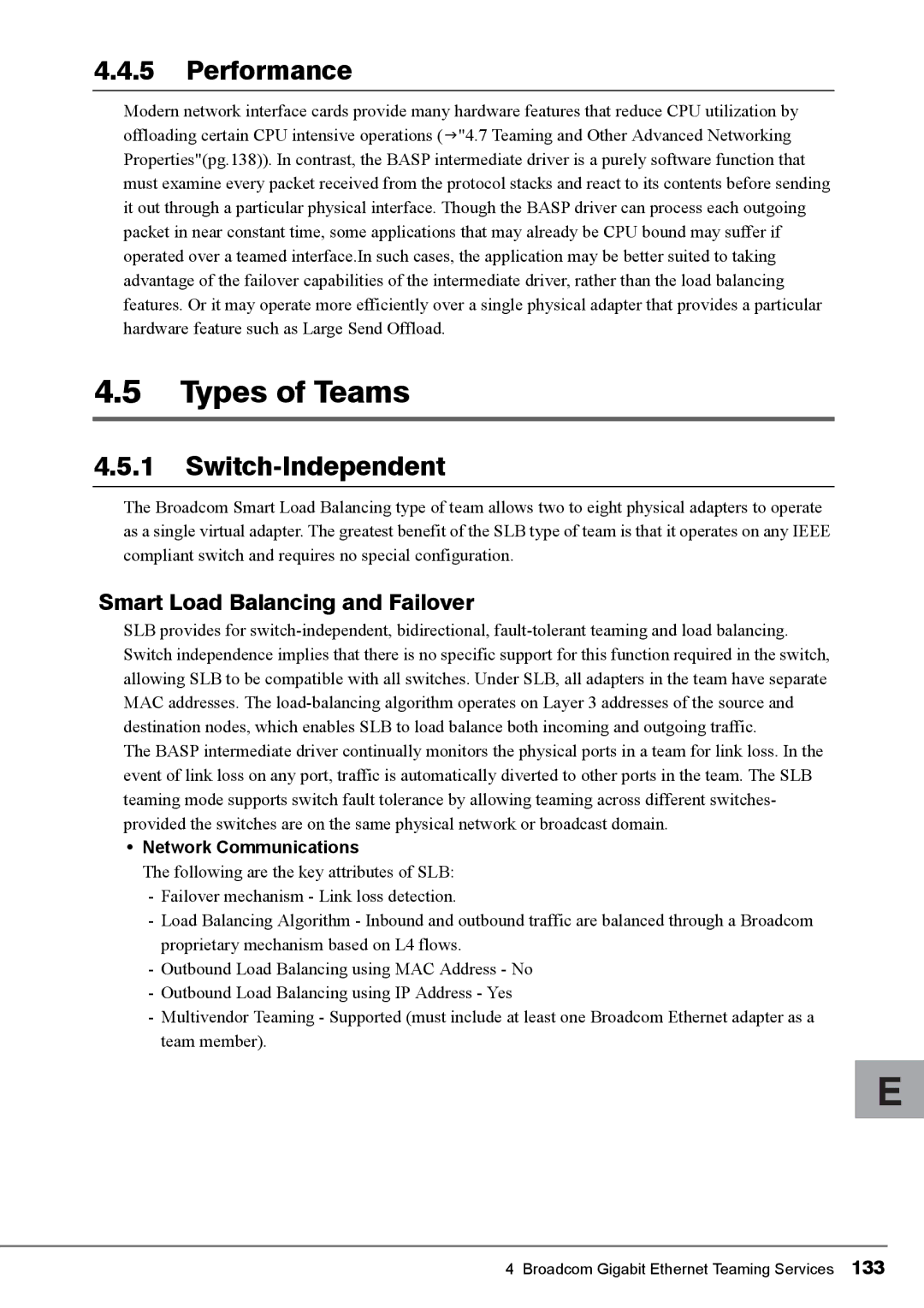
4.4.5Performance
Modern network interface cards provide many hardware features that reduce CPU utilization by offloading certain CPU intensive operations (J"4.7 Teaming and Other Advanced Networking Properties"(pg.138)). In contrast, the BASP intermediate driver is a purely software function that must examine every packet received from the protocol stacks and react to its contents before sending it out through a particular physical interface. Though the BASP driver can process each outgoing packet in near constant time, some applications that may already be CPU bound may suffer if operated over a teamed interface.In such cases, the application may be better suited to taking advantage of the failover capabilities of the intermediate driver, rather than the load balancing features. Or it may operate more efficiently over a single physical adapter that provides a particular hardware feature such as Large Send Offload.
4.5Types of Teams
4.5.1Switch-Independent
The Broadcom Smart Load Balancing type of team allows two to eight physical adapters to operate as a single virtual adapter. The greatest benefit of the SLB type of team is that it operates on any IEEE compliant switch and requires no special configuration.
Smart Load Balancing and Failover
SLB provides for
The BASP intermediate driver continually monitors the physical ports in a team for link loss. In the event of link loss on any port, traffic is automatically diverted to other ports in the team. The SLB teaming mode supports switch fault tolerance by allowing teaming across different switches- provided the switches are on the same physical network or broadcast domain.
•Network Communications
The following are the key attributes of SLB:
-Failover mechanism - Link loss detection.
-Load Balancing Algorithm - Inbound and outbound traffic are balanced through a Broadcom proprietary mechanism based on L4 flows.
-Outbound Load Balancing using MAC Address - No
-Outbound Load Balancing using IP Address - Yes
-Multivendor Teaming - Supported (must include at least one Broadcom Ethernet adapter as a team member).
E
